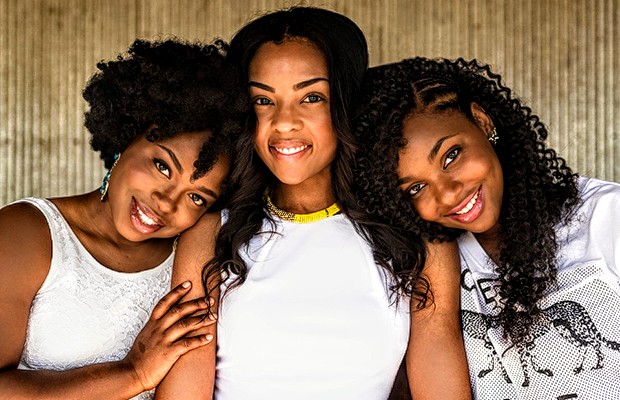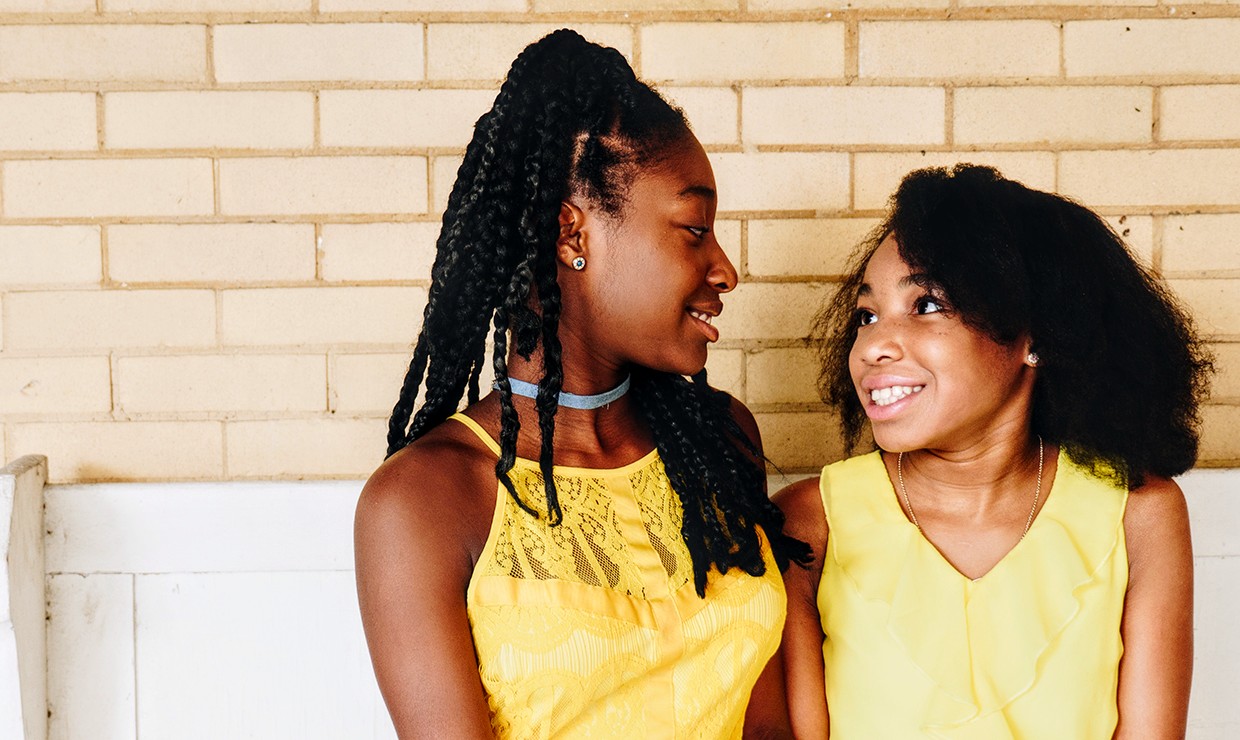With March being a time when the stories of women take central placing and folding, there are certain issues permitted to take fold. What is auspicious about Women’s Herstory Month is how it comes after Black American Her/History Month. Such means that the intersectionality between Black American identity and womanhood, is the link between the two months. You would think that such would have been accepted a long time ago. Yet, for Black American women, there seemed to be an unwritten rule, where our race (cultural ethnicity) was “supposed to be prioritized” over our gender. This insane notion of “choosing,” as if we could not be, BOTH! After all, aren’t we Black American and women?
Of course, it is historical. In the United States, the his/herstory of slavery worked overtime to “remove” Black American women from any connection to their femininity. Not only from the realm of femininity, but to their natural (and holistic) connection to the Earth. One of the atrocities of slavery in the United States, was that it abused Black America’s foremothers, and positioned their bodies as in combat with the Earth; rather than the nutrition and nurture, that was needed. Of course, such did not stop the creativity, magic, and nourishment, that many Black American women created in their own accord. However, there still appears to be an aura of unnaturalness, which permeates Black America’s gardens. It is a stale stench, which has been projected upon the bodies, spirits, and minds of a number of Black American women. It has been projected against Black American women, and her femininity, collectively!
What is auspicious about Women’s Herstory Month is that it permits Black American women to also reassert ourselves into the quilt of woman-unabashedly, unapologetically! It is one of the very essences of defiance. For one, it highlights that we have the right to create spaces of our own. It demonstrates that we have our own culture of womanhood and femininity. Even when society, community members, and feminine energies from the outside have stated that such does not exist, Black American women DO have a culture. In fact, we have, many! His/herstory ordained it as so! So, what has happened? Why has her been removed from her story in Black America’s gardens? Well, one answer is this training of Black American women to be “race loyal,” first; neglecting their natural desires and nurturing spaces, as women. “Choose your gender over your race.” Who every thought of such a psychotic notion? How can a people BE, without their feminine image? How can they continue to exist without healthy representations of their womenfolk, and healthy spaces, which continues to nurture them? Why had much of Black America become comfortable (and indifferent) to these haggardly and anti-feminine depictions of their women, while blaming them for their tired state? Such is problematic in its own right. Where are the holistic spaces, within Black America’s communities, where Black American women are able to gain the nurture, support, and feminine pampering, which is needed by women of any culture and community? Of course, we have our hair salons, spas, and own gatherings, which have been initiated by Black American women. However, where are those collective, community initiatives?

Another important factor which should be addressed is the protection, and guardianship of our gardens-our culture! Again, the shaming of Black American women for “having the nerve’ to affirm ourselves as the feminine and cultural image of Black America. Let’s be honest, our gardens have become a little too crowded. Often times, there are feminine beings of a foreign domain, who have entered Black American gardens, in order to benefit from the fruits. Benefiting from the fruits, while ignoring and mocking the women, whose gardens they have entered. There have been too many instances of non-Black American women coming into Black American spaces with notions of superiority-feeling as if they are more aesthetically pleasing forms of Blackness, or “more feminine” than the maidens of Black American soil. These gardens. These intrinsic gardens, which too many have come to exploit. Entering without acknowledging the maidens, and mothers, of these gardens. There are a number of them who secretly, or boisterously, enter with the intentions of “take over.” You see reflections of such attitudes by many of those who date or marry Black American men. “I got yo’ man,” is the mentality of a number of such foreign maidens. It is a deeper understanding in thinking that one has “defeated” Black American women in their own territory, by being coupled with Black American men. Many of those claiming to support and love us secretly harbor such feelings. Furthermore, it goes to show that too many of such methods of interracial, and inter-cultural couplings are conducted out of envy and jealousy towards Black American women. Taking advantage of the self-hatred, and disdain, that a number of Black American men have towards their own women. This is due to a number of factors. A number which will not be addressed or stated in this current article. For this piece, we are focusing on Black American womanhood and identity. Right now, she will be centered!

The removal of Black American women from our gardens has resulted in a hardening of our very existence. Of course, this does not pertain to all. Nevertheless, as a collective, we cannot deny that such exist. Perhaps, its one thing that we, as a group of women, have not done together. Maybe, there are certain negative behaviors, which have been passed on from slavery. They have been carried on, and have not been addressed in the way they deserve, simply because we have not made time to truly, unmask them. We have been too busy overcoming, and “moving on,” to address them. However, the times are forcing us to address them. That’s simply a reality. There is no other way around it. Our very health-mentally, physically, and emotionally-requires it. That stale aura has clogged and brought an ugly haze to our femininity, as it relates to how we are painted, collectively. It’s time to air out the staleness, so that the glitters associated with our “Black Girl Magic” (a term which directly speaks to our experiences and was created to articulate Black American girls artistry) becomes filled with zest and spark. The world has smelled our perfumes. So now, it is time that we sprayed them for ourselves. Now, it is time! The entire world has benefited from our gardens. Many times, our very image is not associated with them. Sometimes, its unknowingly. Other times, its purposefully done. All the reason for us to courageously assert our presence as the feminine image of a people of peculiar soil. In fact, we owe it to our foremothers to do just that. For they have left us the gardens. We must simply return to them; supporting each other, along the way.


No longer can Black America ignore the attacks against our young maidens. In fact, it has become very obvious that their image has been presented as a negative; while consistently associated with sorrow. Even within films, which are supposed to highlight Black America in an empowering light, we are still missing healthy representations of Black America’s maidenal presence. And I don’t mean, Black American actresses who play roles of foreign, Black cultures, as a depiction of our success. That doesn’t count. Where are the performances of us, on our authentic identity as Black American women, and the holistic femininity connected to our maidenhood? The time has come for such to be illuminated. The time has come. And, it has been needed for a very long time.
No longer can we sit by and observe our image being ridiculed, as an object of scorn. Meanwhile, our very culture is embraced, without our image. No! It is time for a change. It is time that Black American women-young and old-see themselves as the birthers of Black America! The birthers and the cultural producers. From our music, to our culinary. Our very dance. Sound. Fashion. Linguistics. Social environments. Traditions. It is ever growing and ever changing. In all of its myriad forms, it is ours. And, it will forever, be so!


On a final note, as more Black American women-girls, mothers, maidens, and womenfolk join in the month of March, and the celebration of women’s herstory, let us continue to remember the collective of our Being. Let’s remember the wholeness of our community, and the significance of authentic, Black American maidens. Yes! Authentic ones. That, too, must be made very clear. We cannot forget that there are women who use marriage and pregnancy as a gateway into Black American, while proclaiming that Black American children are “inferior” to those they have birthed. That too, is a reality. Every culture of woman has her garden. It goes to say that Black American women are no different. It means that just as every group of women, we too, have a right to affirm our unique womanhood. Who is Black American? They are the people who were enslaved in the United States of America. That peculiar group of people who labored, toiled, and overcame extreme violence against their very existence. And out of that came a wealth of peculiar aesthetics.
So,
Be Brave. Be Bold. And BE a Black American Beauty! Those sacred daughters of peculiar, blackened glitters of soil!
#WomensHerstoryMonth #WomensHistoryMonth2021 #BlackAmerica #BlackAmericanWomen


